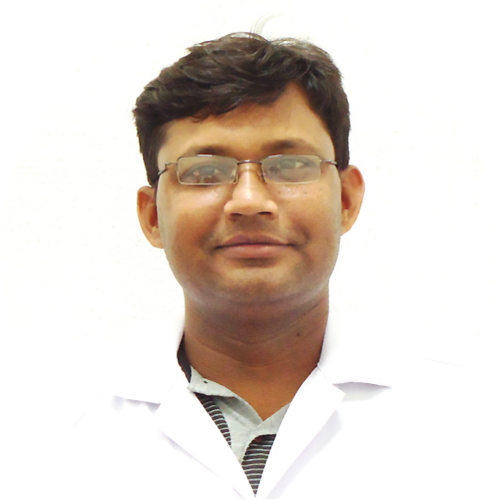This note covers work carried out at Leeds University with co-workers from Durham University in the area of flow chemical synthesis using the expression CMS (Advion, Ithaca, NY). Two different reactions are described.
Liverpool School of Tropical Medicine (LSTM), United Kingdom
Q: WHAT IS THE FOCUS OF YOUR LAB’S RESEARCH?
A: The Liverpool School of Tropical Medicine (LSTM) is dedicated to research and teaching on tropical diseases. We are helping improve the health of some of the poorest people in the world by carrying out scientific research and developing treatments that will directly benefit them.
Specifically, I work in the department of parasitology, where our focus is on the key tropical parasites such as malaria, TB and filarial worms.
Q: WHY DID YOU INCORPORATE THE EXPRESSION CMS INTO YOUR LABORATORY?
A: The expression was originally purchased to save us from a 15-minute walk to get simple MS data at the University’s main analytical service. Also, it is compact and very easy to use, you do not need to be an expert in MS to generate very useful and meaningful data.
Q: HOW DO YOU USE THE EXPRESSION CMS?
A: We use the expression in the direct injection configuration for checking whether reactions have worked and whether the next purification and/or reaction steps are worth proceeding.
Before we got the expression, we either had to walk across campus to use the central service or continue without any knowledge as to whether our reactions had worked. The expression saves us time and boosts our overall research performance.
I am also planning to use it for some simple metabolism studies in the near future.
Analysis of 4-Aminobiphenyl and 4-Bromoanilin on normal phase TLC using TLC/MS
The analytical verification of compounds in organic syntheses is a challenging task. The sample is often directly taken out of the reaction mixture and therefore contains many impurities and matrix components. As a result, low-level sample preparation combined with a direct analysis method is highly beneficial. TLC/MS (thin layer chromatography – mass spectrometry) is such an analytical technique.
Co-authored with Merck Millipore in Darmstadt, Germany, this application note demonstrates a normal phase TLC/CMS technique for the rapid determination of 4-aminobiphenyl in its reaction mixture.
For the application note on the TLC/CMS determination of 4-aminobiphenyl in reverse phase, click here.
Analysis of 4-Aminobiphenyl and 4-Bromoanilin on reversed phase TLC using TLC/MS
The analytical verification of compounds in organic syntheses is a challenging task. The sample is often directly taken out of the reaction mixture and therefore contains many impurities and matrix components. As a result, low-level sample preparation combined with a direct analysis method is highly beneficial. TLC/MS (thin layer chromatography – mass spectrometry) is such an analytical technique.
Co-authored with Merck Millipore in Darmstadt, Germany, this application note demonstrates a reverse phase TLC/CMS technique for the rapid determination of 4-aminobiphenyl in its reaction mixture.
For the application note on the TLC/CMS determination of 4-aminobiphenyl in normal phase, click here.
University of Hull, Archibald Group
Q: WHAT IS THE FOCUS OF YOUR LAB’S RESEARCH?
A: As part of the Archibald research group our main research area is developing radiopharmaceutical compounds for medical imaging and targeted protein binding molecules for therapeutic applications.
Specifically, I am working on synthesising radiotracers to target the CXCR4 chemokine receptor which has been shown to be overexpressed in 23 different types of cancer.
Q: WHY DID YOU INCORPORATE THE EXPRESSION CMS INTO YOUR LABORATORY?
A: The expression CMS was purchased as we are a large research group and it is more cost and time effective to be able to carry out rapid MS analysis in situ for some sample and to use the University’s analytical service only for more complex analyses that are less time sensitive. The expression CMS fits nicely onto the bench top, performs all the functions needed for general day to day use, and is easy to use and maintain.
Q: HOW DO YOU USE THE EXPRESSION CMS?
A: We use the expression CMS to monitor chemical reactions, check for by-products and gauge the purity of our products. We have the TLC-MS interface which is extremely useful in identifying compounds straight from the TLC plate. Personally, I have used the expression CMS to examine fractions from a column to identify exactly when my product was being eluted, which would not have been possible previously. Purchasing the expression CMS has undoubtedly saved our group a great deal of time and has helped advance our research.
University of Dundee, Drug Discovery Unit (DDU), United Kingdom
Q: WHAT IS THE FOCUS OF YOUR LAB’S RESEARCH?
A: The Drug Discovery Unit (DDU), based at the University of Dundee, is an independent, fully integrated Drug Discovery Group that works across multiple disease areas. We are active in areas of unmet medical need and bridge the gap between academic research and industrial drug discovery. Our staff are multi-disciplinary and come from both Academic and Industrial backgrounds.
Q: WHY DID YOU INCORPORATE THE EXPRESSION CMS INTO YOUR LABORATORY?
A: We needed a mass spectrometer that was easy to install, operate and move as well as available at a reasonable price. We have had the instrument for over a year now and are very happy with it.
Q: HOW DO YOU USE THE EXPRESSION CMS?
A: We have the expression linked to an HPLC instrument and it is used as an open access system. The combination of UV purity data along with MS confirmation is incredibly powerful for our chemists. The instrument is networked so our chemists can then process and review data from their desks.
SynZeal Research Pvt Ltd, Ahmedabad, Gujarat, India
Q: WHAT IS THE FOCUS OF YOUR LAB’S RESEARCH?
A: At SynZeal Research Pvt Ltd, with state of the art synthesis laboratory, we are focused on custom synthesis of high purity secondary reference standards of API Impurities and metabolites. SynZeal also provides chemistry research services and products to synergize the drug discovery and development.
Q: WHAT PREVIOUS WORKFLOW CHALLENGES DID YOU EXPERIENCE?
A: The major challenge to our workflow is to have fast decision on success or failure of targeted chemical transformation to decide further course of action and to complete the projects on time.
Q: WHY DID YOU INCORPORATE THE EXPRESSION CMS INTO YOUR LABORATORY?
A: We selected expression CMS as one of the affordable alternative for Mass Spectroscopy which can be operated even by an inexperienced person in mass spectrometry. Our productivity was increased many fold after installation of this system.
Thin-Layer Chromatography/Mass Spectrometry Analysis of Sample Mixtures Using a Compact Mass Spectrometer
There have been a few reports on thin layer chromatography/mass spectrometry (TLC/MS) and thin layer chromatography/tandem mass spectrometry (TLC/MS/MS). The merits of TLC/MS (i.e., without MS/MS or high-resolution mass measurement) include lower-cost mass spectrometers, ease of operation and molecular weight (MW) information when applicable. TLC/MS/MS offers additional benefits, but requires more expensive instrumentation and more challenging operational requirements.
This article describes the direct coupling of TLC plates or other planar surfaces to a compact, single-quadrupole mass spectrometer that can provide routine electrospray ionization (ESI) or atmospheric pressure chemical ionization (APCI) in both the positive and negative ionization modes.
Suzuki Reaction Monitoring Using Compact Mass Spectrometry with TLC Interface
This application note presents an online thin-layer chromatography (TLC)/CMS technique using the Advion Interchim Scientific expression® compact mass spectrometer (CMS) and Plate Express™ interface to provide compound structural information without sample preparation after TLC separation. A Suzuki reaction for the synthesis of 4-aminobiphenyl will be demonstrated. The online TLC/CMS technique provides rapid and accurate determination of reaction mixture components without the need for off-line TLC sample preparation procedures.
expression® CMS: Mass Spectrometers Designed for Chemists
With decades of mass spectrometry and chemistry expertise, Advion Interchim Scientific has produced a family of compact mass spectrometers designed for the chemist. The affordability, small size and ease of use make them ideal for use directly at the chemist’s bench, giving immediate answers and informed decisions instead of waiting.
The Advion Interchim Scientific expression® compact mass spectrometer (CMS) is a fast and easy analytical tool for the organic chemist. Ideal for fast reaction monitoring, the expression® CMS features a single quadrupole that can adapt to multiple ionization sources in seconds, including both ESI and APCI. The mass spectrometer works in a variety of applications, including food and beverage, pharmaceutical, biomedical, peptides and proteins, drug discovery and more. The expression® CMS offers a variety of novel sampling techniques, including:
- Direct mass analysis of TLC plates in 30 seconds at the push of a button with Plate Express™
- One-touch analysis of solids and liquid samples with the ASAP® probe
- LC/CMS
- Many more options and configurations to suit your needs
Learn more about the different sample techniques available with the expression® CMS, including fast assay methods for liquids, solids, gases, and even air-sensitive compounds.
Fill out the form to download the full expression® CMS brochure now.




